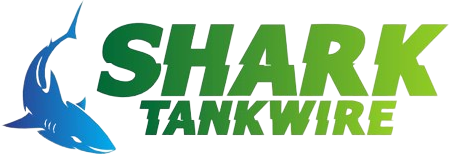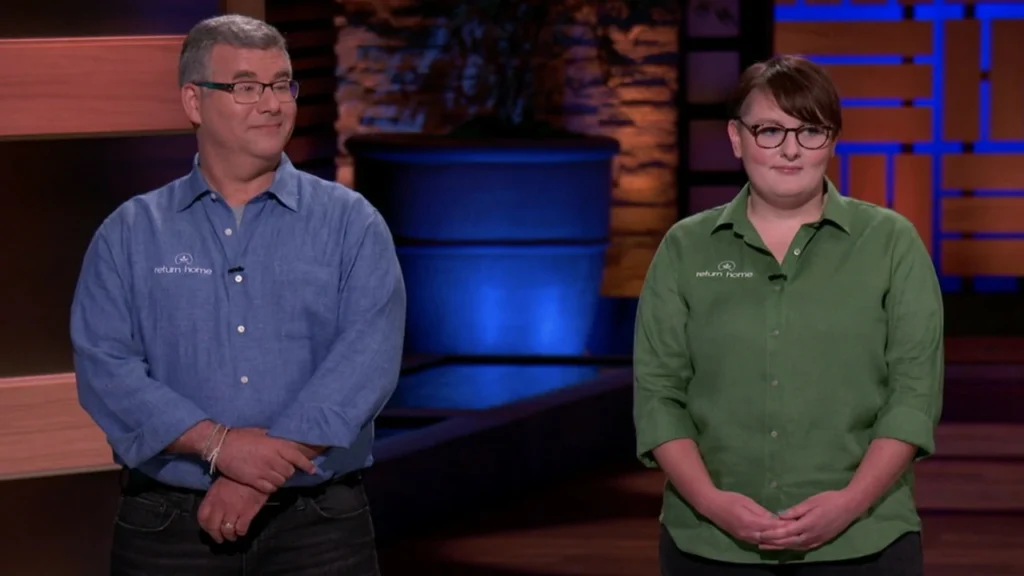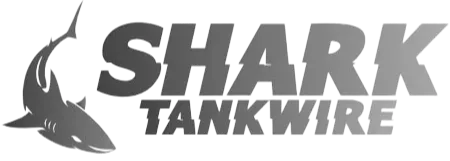Did Return Home get an investment on Shark Tank Season 15? No, Return Home did not secure an investment from the Sharks during their appearance on Shark Tank Season 15. Despite not receiving an immediate investment, their appearance on the show likely boosted the visibility and awareness of their innovative Terramation process.
Summary
- Return Home, a company specializing in human composting (Terramation), appeared on Shark Tank Season 15.
- They did not receive an investment from the Sharks, but gained valuable exposure for their unique service.
- The episode sparked conversations about sustainable funeral practices and the growing interest in Terramation.
- Return Home continues to operate and advocate for eco-friendly end-of-life options.
Return Home Update | Shark Tank Season 15
Return Home, a Washington-based funeral home, is revolutionizing the way we approach death care with their innovative Terramation process.
Also known as human composting or natural organic reduction, Terramation offers a gentle and sustainable alternative to traditional burial and cremation.
At the heart of Return Home’s mission is a deep respect for the environment and a desire to create a more meaningful end-of-life experience.
Their Terramation process gently transforms human remains into nutrient-rich soil, allowing individuals to return to the earth in a way that nourishes the environment.
This process not only reduces our carbon footprint but also offers a unique way to honor and celebrate the lives of loved ones.
Return Home’s Mission and Terramation Process
Return Home’s mission is to provide families with a meaningful and sustainable alternative to traditional burial or cremation. Their Terramation process is a natural, gentle, and environmentally friendly way to return a loved one to the earth.
How Terramation Works
- Laying In: The body is placed in a vessel with a mixture of wood chips, alfalfa, and straw.
- Transformation: Over the course of 30 days, microbes naturally break down the body, transforming it into soil.
- Resting: The soil rests for another 30 days to cure and mature.
- Return Home: The nutrient-rich soil is then returned to the family, who can use it to plant a tree, nourish a garden, or scatter it in a meaningful place.
This process is not only environmentally friendly but also offers a unique way to memorialize loved ones, allowing their legacy to live on in a way that benefits the earth.
“Our goal is to change the conversation around death and dying, to make it something that’s not just about grief and loss, but also about hope and renewal.” – Micah Truman, CEO of Return Home
The Growing Interest in Sustainable Funeral Practices
The growing interest in sustainable funeral practices is a reflection of a broader shift in societal values towards environmental consciousness. As we become more aware of the environmental impact of our choices, many people are seeking out alternatives to traditional burial and cremation, which can be resource-intensive and polluting.
Terramation, with its focus on natural decomposition and environmental stewardship, aligns with this growing desire for more sustainable end-of-life options. It offers a way to honor loved ones while also contributing to the health of the planet.
This shift is also fueled by a desire for more personalized and meaningful end-of-life rituals. Terramation allows families to actively participate in the process, creating a more intimate and healing experience.
As awareness of Terramation grows, we can expect to see a continued increase in interest in this and other sustainable funeral practices. This shift towards more eco-friendly options is not only a testament to our evolving values but also a hopeful sign for the future of our planet.
Return Home’s Shark Tank Appearance
Return Home’s founders, Micah Truman and his father, appeared on Shark Tank Season 15, Episode 2, which aired on September 29, 2023.
They pitched their innovative Terramation process and sought a $2 million investment for a 5% stake in their company.
While the Sharks were intrigued by the concept, they ultimately did not invest due to concerns about valuation and market scalability.
| Entrepreneurs | Micah Truman and father |
|---|---|
| Business | Return Home (Terramation services) |
| Ask | $2 million for 5% equity |
| Deal | No Deal |
| Sharks | Mark Cuban, Barbara Corcoran, Kevin O’Leary, Lori Greiner, Robert Herjavec |
| Season/Episode | Season 15, Episode 2 |
| Original Air Date | September 29, 2023 |
| Website | Return Home |
| Key Points of Pitch |
|
| Why Sharks Declined |
|
The Sharks’ Feedback and Concerns
The Sharks were impressed by Return Home’s mission and the potential environmental impact of Terramation. They acknowledged the growing interest in sustainable funeral practices and the need for more eco-friendly alternatives. However, they also expressed several concerns:
- Valuation: The Sharks felt that Return Home’s $40 million valuation was too high for a company in its early stages, especially given the regulatory hurdles and limited market penetration in some areas.
- Scalability: Some Sharks questioned the scalability of the business model, citing the need for significant infrastructure and regulatory approvals to expand into new markets.
- Regulatory Hurdles: Terramation is not yet legal in all states, which could limit the company’s growth potential.
Reasons for Not Receiving an Investment
Ultimately, the Sharks decided not to invest in Return Home due to a combination of factors. The high valuation, coupled with concerns about scalability and regulatory challenges, made it a risky investment.
Additionally, some Sharks felt that the emotional nature of the funeral industry might make it difficult to achieve the rapid growth they typically seek.
Despite not securing an investment, Return Home’s appearance on Shark Tank provided them with invaluable exposure and sparked a national conversation about sustainable funeral practices.
This increased awareness has likely benefited the company in the long run, as more people become open to the idea of Terramation as an eco-friendly alternative to traditional burial or cremation.
“While we didn’t get a deal on Shark Tank, we gained something even more valuable: exposure for our mission and the opportunity to educate millions of people about Terramation.” – Micah Truman, CEO of Return Home
Update After Shark Tank
Return Home’s appearance on Shark Tank, while not resulting in an immediate investment, proved to be a significant turning point for the company.
The national exposure catapulted their brand into the spotlight, sparking conversations about sustainable funeral practices and the viability of Terramation as a mainstream option.
Increased Visibility and Brand Awareness
The Shark Tank effect was undeniable. Return Home’s website traffic surged, and inquiries about their services poured in from across the country.
The company’s social media following grew exponentially, and they were featured in numerous media outlets, including The Seattle Times and Funeral Director Daily.
This heightened visibility not only boosted brand awareness but also legitimized Terramation as a viable alternative to traditional burial and cremation.
“Our appearance on Shark Tank was a game-changer. It put Terramation on the map and opened up a national conversation about sustainable death care.” – Micah Truman, CEO of Return Home
Impact on the Conversation about Terramation
Return Home’s Shark Tank appearance ignited a much-needed conversation about the environmental impact of traditional funeral practices and the need for more sustainable alternatives.
The episode prompted many people to reconsider their own end-of-life choices and explore Terramation as a way to reduce their environmental footprint.
“Return Home’s appearance on Shark Tank was a watershed moment for the Terramation movement. It brought this important conversation into the mainstream and helped to normalize the idea of human composting as a viable option.” – Katrina Spade, Founder of Recompose, another Terramation provider
Company Growth and Expansion
Despite not receiving a Shark Tank investment, Return Home has continued to grow and expand. They have opened a second location in Seattle and are actively exploring opportunities to expand into other states where Terramation is legal. The company has also partnered with other funeral homes to offer Terramation services to a wider audience.
Return Home’s success is a testament to the growing demand for sustainable funeral practices and the increasing acceptance of Terramation as a viable alternative.
The company’s commitment to environmental stewardship and its focus on providing families with a meaningful and personalized end-of-life experience have resonated with consumers and positioned them as a leader in the emerging field of Terramation.
“We’re just getting started. We believe that Terramation is the future of death care, and we’re committed to making it accessible to everyone who wants it.” – Micah Truman, CEO of Return Home
The Future of Return Home and Terramation
Return Home’s journey, both before and after Shark Tank, exemplifies the growing shift in the funeral industry towards more sustainable and personalized end-of-life options.
As the company continues to innovate and expand, it faces both challenges and opportunities in its mission to revolutionize death care.
Challenges and Opportunities
Challenges
- Legalization: Terramation is not yet legal in all states, which limits Return Home’s potential market reach. Ongoing advocacy and education efforts are crucial to expanding legalization across the country.
- Public Acceptance: While interest in Terramation is growing, there is still a need to educate the public about its benefits and address any misconceptions or concerns.
- Competition: As the demand for sustainable funeral practices increases, more companies are entering the Terramation market, creating competition for Return Home.
Opportunities
- Growing Demand: The rising awareness of environmental issues and the desire for more personalized end-of-life rituals are driving demand for sustainable funeral options like Terramation.
- Innovation: Return Home can continue to innovate and improve its Terramation process, making it even more efficient and accessible to a wider audience.
- Partnerships: Collaborating with other funeral homes and organizations can help Return Home expand its reach and educate more people about Terramation.
“We see a tremendous opportunity to transform the funeral industry by offering a truly sustainable and meaningful alternative to traditional burial and cremation.” – Micah Truman, CEO of Return Home
Potential Impact on the Funeral Industry
Return Home and the Terramation movement have the potential to significantly disrupt the traditional funeral industry.
By offering a more environmentally friendly and personalized approach to death care, they are challenging the status quo and providing consumers with more choices.
Environmental Impact
Terramation has a significantly lower environmental impact than traditional burial or cremation. It reduces carbon emissions, conserves land, and avoids the use of harmful chemicals and embalming fluids.
As more people choose Terramation, the funeral industry’s environmental footprint could be significantly reduced.
Personalization and Meaning
Terramation offers a more personalized and meaningful way to memorialize loved ones. Families can choose to use the nutrient-rich soil to plant a tree, nourish a garden, or scatter it in a place that holds special significance. This connection to nature and the cycle of life can provide comfort and healing during a difficult time.
Shifting Consumer Preferences
As more people become aware of the environmental and emotional benefits of Terramation, we can expect to see a shift in consumer preferences towards more sustainable funeral practices.
This could lead to increased demand for Terramation and other eco-friendly alternatives, forcing the traditional funeral industry to adapt and evolve.
“The rise of Terramation is a sign that the funeral industry is undergoing a much-needed transformation. It’s time for us to embrace more sustainable and meaningful end-of-life practices.” – Caitlin Doughty, funeral director and author of “Smoke Gets in Your Eyes & Other Lessons from the Crematory”
The future of Return Home and Terramation is bright. By addressing the challenges and seizing the opportunities ahead, the company can continue to lead the way in transforming the funeral industry and providing families with a more sustainable and meaningful way to say goodbye to their loved ones.
FAQs
What is Terramation?
Terramation, also known as human composting or natural organic reduction, is a process that transforms human remains into nutrient-rich soil. This is achieved by placing the body in a vessel with organic materials like wood chips, alfalfa, and straw, where microbes naturally break down the body over several weeks. The resulting soil can then be used to plant a tree, nourish a garden, or be scattered in a meaningful place.
Is it legal in my state?
The legality of Terramation varies by state. It is currently legal in Washington, Oregon, Colorado, California, Vermont, New York, and Delaware, with several other states considering legislation. You can check the legal status of Terramation in your state on the Return Home website or by consulting with a funeral professional.
How does it compare to traditional burial or cremation?
Compared to traditional burial, Terramation is a more environmentally friendly option. It avoids the use of embalming fluids and the need for burial vaults, which can leach harmful chemicals into the soil. It also conserves land and reduces carbon emissions. Compared to cremation, Terramation is even more eco-friendly, as cremation requires a significant amount of energy and releases carbon dioxide into the atmosphere.
How can I learn more about Return Home’s services?
You can learn more about Return Home’s Terramation services by visiting their website. The website provides detailed information about the Terramation process, pricing, and FAQs. You can also contact Return Home directly to schedule a consultation or to ask any questions you may have.
The Bottom Line
Return Home’s Terramation process offers a sustainable and meaningful alternative to traditional burial and cremation. By transforming human remains into nutrient-rich soil, it allows individuals to return to the earth in a way that nourishes the environment. This innovative approach to death care is gaining popularity as more people seek eco-friendly and personalized end-of-life options.
While Terramation may not be for everyone, it represents a significant shift in the way we think about death and dying. It offers a way to honor loved ones while also contributing to the health of the planet.
As awareness of Terramation grows, we can expect to see a continued increase in interest in this and other sustainable funeral practices. This shift towards more eco-friendly options is not only a testament to our evolving values but also a hopeful sign for the future of our planet.
Check our other company updates from Season 15, Episode 2:








